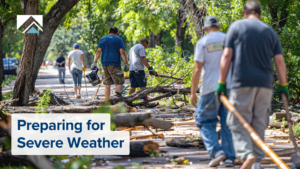Why do I need renters insurance?
Just because your landlord has coverage doesn’t mean that you do too.
In most cases, your landlord’s insurance policy covers only structural damage to the building itself. Renters insurance protects your possessions in case of a covered loss from fire, smoke, lightning, vandalism and theft. It also extends beyond on premise theft and hazards, covering property that is stolen from your car, or is lost or damaged anywhere you happen to be.

Parts of renters insurance
Renters insurance provides protection against both property loss and liability in the event that you cause injury or property damage.
Property protection
Renters insurance covers your possessions against damage for things such as fire, smoke, lightning, vandalism, theft and water damage—but not flooding—to name a few.
It also extends beyond on-premise theft and hazards, covering property that is stolen from your car, or lost or damaged anywhere you happen to be.
Liability coverage
In addition to protecting your personal property, renters insurance also protects you in the event that you are responsible for injury or property damage to others. That means you’ll likely be protected if someone slips and sprains their ankle at your annual birthday bash.
Liability also provides coverage for legal defense costs and judgments in a lawsuit, whether the incident occurred within your rented residence, or elsewhere.
Coverage options: Replacement cost value or actual cash value
There are two personal property coverage options to choose from: replacement cost value or actual cash value. Here’s an example to illustrate the difference:
The furniture you bought a few years ago for $650 is now worth only $100, but today costs $900 to replace. With an actual cash value policy, you would get reimbursed the current depreciated cost minus your deductible. However, if you have replacement cost for your personal property, you would collect the full cost to replace the furniture, less your deductible.




